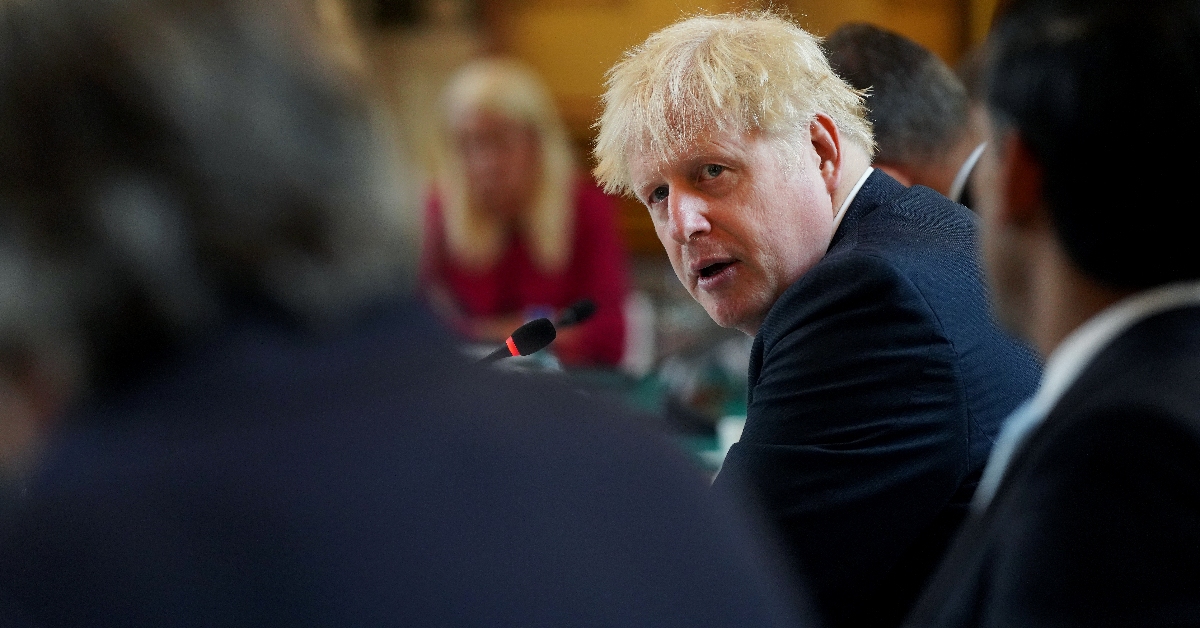So the great Sue Gray report remains elusive, at least at the time of writing. This week’s Westminster frenzy has abated as lobby journalists now look towards Monday as the day when ‘partygate’ kicks off again – only this time for real.
The breathing space this allows for those who inhabit the shell-shocked Downing Street bunker will permit a less panicked response to whatever Gray establishes.
It also allows the Prime Minister to bash the phones in an effort to keep his premiership alive. If the report is handed over today or tomorrow, it would also allow a weekend spin exercise in an effort to condition the mother of all rammies that will accompany publication next week.
I feel for colleagues on 24-hour news channels, standing in Downing Street or Central Lobby engaging in the great skill of rolling news, looking excited and conveying a sense of crisis whilst simultaneously having nothing to say.
One of the correspondents’ themes as they fill yet more time is to speculate if the dip in feverishness allows Boris Johnson the time to get his troops onside. Conjecture becomes the stock in trade of the interminable two ways as snippets from conversations are relayed, often with little context and so heavily qualified that it begs the question ‘well, why say it?’. The answer, of course, is that a hack making a noise is preferable to dead air.
The big questions
So where are we with ‘partygate’? There are only three questions worth asking. Will the report trigger a vote of no confidence in Boris Johnson’s leadership of the Conservative Party? If the answer to that is yes, will that trigger a leadership contest? Finally, could he survive such a contest?
Since the findings of the Gray report have already triggered a police inquiry, it is reasonable to conclude that the report is bad news for the Prime Minister. I suspect that the required 54 MPs will write letters to Sir Graham Brady, who chairs the 1922 committee, intimating that they have lost confidence in the Prime Minister.
These events tend to move at lightning speed and views can change fairly quickly. That is why the Prime Minister’s telephone diplomacy will count for little in the end. He is trying to harden support in the absence of the Gray report, which is likely to be the catalyst for that very support haemorrhaging.
Perhaps of all of the questions that can be posed, this is the most pertinent. Assuming he faces a no-confidence vote, wins it but is further damaged, will anyone break rank to force a leadership contest? It’s not enough for MPs to mortally wound him in a no-confidence vote if there are no runners and riders in a contest.
If one colleague decides to challenge, it will in all likelihood open the floodgates and at that point he will be finished. Nothing exercises the minds of MPs more than a prospect of a changing of the guard and what it might mean for individual ambition.
Saved by cabinet cowardice?
Paradoxically, Johnson’s greatest card might be the cowardice of his own cabinet colleagues. They, however, might find the courage of backbench convictions if the vote against Johnson in a no-confidence ballot is uncomfortably high for the Prime Minister.
Back in December 2018, Theresa May faced precisely that kind of vote. 117 MPs had no confidence in her leadership and although she soldiered on, she eventually resigned as Prime Minister owing to an inability to get a Brexit deal through the House of Commons.
The dynamic created by the publication of the Gray report is really important, for it could give unstoppable momentum to the Prime Minister’s critics. Only a mass outbreak of dither could embolden him and in the current climate that is unlikely.
Even if he survives the central issue of his judgement or lack of it won’t go away. It will simply be transported to the next issue, which in turn becomes the next crisis. Some MPs will conclude partygate, far from being a standalone issue, is but a symptom of an inability to govern.
I come back to a point I made in my last piece. The defining issue for this parliament is how the government deals with the cost-of-living crisis, which will kick households by the middle of this year. A voter revolt is guaranteed and management of widespread discontent in the Tory shires will require a skilled political operative to navigate choppy electoral waters.
On balance, I think too many Conservative MPs will conclude that the phrase ‘skilled political operative’ and Boris Johnson is as laughable an oxymoron as it is possible to conjure. In the end, even if he survives this latest crisis, the next one will get him.

 No10 Downing St
No10 Downing St

























